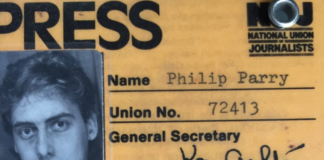- Bombs away! - 28th February 2026
- Massaging the truth - 27th February 2026
- ‘It’s the new economy, stupid…’ - 27th February 2026
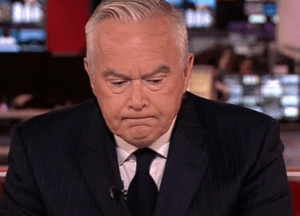
Disturbing news that the BBC were told about Huw Edwards’ behaviour three years ago, but merely ‘warned’ him, has raised major questions about the giant corporation’s procedures, with one former executive saying that heads should roll.
The revelation comes after the BBC apologised for the way it handled the later complaints which actually led to the downfall of Mr Edwards, despite an assurance that a “very clear code of conduct” was followed. He has now resigned from the BBC.
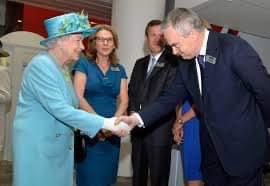
These later allegations about Mr Edwards were made in May of last year but did not reach senior managers until July 6, with the complaint not being “escalated quickly enough”. This also underlines how Wales has played a central role in the scandal.
To hear now that the BBC KNEW about Mr Edwards’ alleged online conduct, several years before they burst into the open, will worry onlookers.
 The Sunday Times (ST) (among many outlets that reported the news) has said: “In May 2021, a woman, then in her late forties, got in touch with the BBC after exchanging messages with Mr Edwards first on Instagram then on email, requesting that the corporation intervene to halt contact”.
The Sunday Times (ST) (among many outlets that reported the news) has said: “In May 2021, a woman, then in her late forties, got in touch with the BBC after exchanging messages with Mr Edwards first on Instagram then on email, requesting that the corporation intervene to halt contact”.
One former executive at the corporation told our Editor, Welshman Phil Parry: “This is disgraceful, and people at the top should resign”.
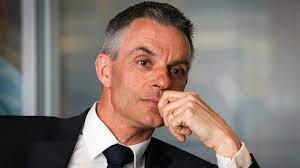
Another declared: “Davie’s (Director General [DG] Tim Davie’s) leadership credentials are in the spotlight. First the Lineker fiasco and now the Edwards’ public relations car crash. These episodes have done immeasurable damage to the BBC and both could have been avoided by immediate intervention”.
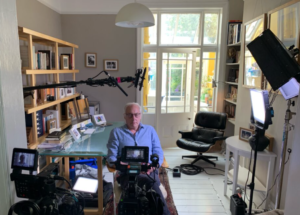
Phil spent 23 years at the organisation, both in Cardiff and London, and says he has been left in a state of shock by what has happened, and this stance has been underlined by others.
An OUTSIDE report by Deloitte into the BBC’s complaints handling procedure was highly-critical and said that a grievance about Mr Edwards by the family of a young person was made on May 18 2023.

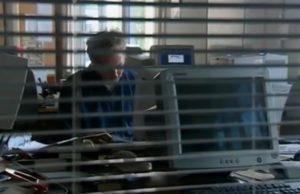
But the case was not logged on the giant corporation’s ‘case management system’ so there “was no opportunity for wider visibility of the case within the BBC.
“There was no documented process for contact with the complainant and/or follow up”, the report noted.

It also found that there was a need for “greater consistency” in how complaints are processed, and emphasised the appalling fact that when attempts to make contact were unsuccessful, the course of action was not clear.
Leigh Tavaziva, the corporation’s Group Chief Operating Officer (GCOO) stated: “Although our existing processes and systems are, on the whole, working effectively, this review shows that we need to join them up better to ensure no matter how a non-editorial complaint comes into the BBC it is escalated swiftly, when needed, and dealt with by the right people”.
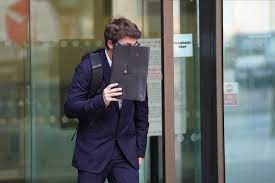
Journalists who covered the extraordinary incident, have apparently endorsed criticism that the BBC effectively clammed up about it.
For example, one Sky journalist declared at the time: “The fact all of us broadcasters have asked, have put in requests again and again to speak to the director general, and the fact that he has only given an interview to his own people is not a good look for the BBC”.
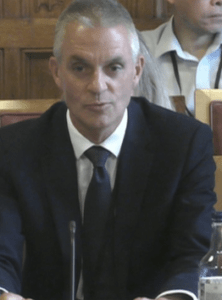
Yet senior executives seemingly took a different view. During a pre-arranged House of Lords (H of L) Communications Committee (CC) hearing about a week afterwards, the BBC’s DG, Mr Davie, said: “We have been in touch with the complainant”, and that due to the “history of this industry… we should all be concerned and appropriately diligent around the abuse of people in powerful positions”.
He proclaimed that when it came to presenters or people in power, it was important to be “very very clear about what your expectations are culturally as well as the policy”. Mr Davie was “proud of the work we’ve done over last few years” as there is now a “very clear code of conduct”.
In that hearing he sat alongside acting chairwoman, Dame Elan Closs Stephens from Wales.
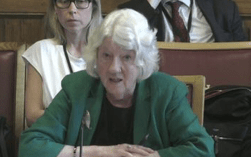
She and Mr Davie were forced to answer important queries about the corporation’s attitude during the affair, following suggestions that it did not properly investigate the original complaint (which has now been borne out by the Deloitte report). Dame Elan told peers that despite “huge pressure” to name Mr Edwards, the corporation “had a duty to act with some calm and rationality in the face of lack of rationality and lack of calm”.

This came after days of speculation about who the presenter was who had been suspended for allegedly paying £35,000 to a teenager in exchange for sexually explicit images, and Mr Edwards was finally ‘outed’ by his wife.
A news item stated: “Vicky Flind, the wife of news reader Huw Edwards, has named him as the BBC presenter facing allegations over payments for sexually explicit images in a statement issued on his behalf”.

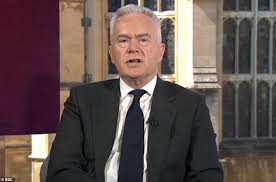
Harmful claims then emerged about Mr Edwards’ actions generally at the BBC, but MailOnline said that senior executives “moaned” about missing Wimbledon and the Ashes to deal with them.
There have been accusations that apart from the main story involving one young person, others were involved too, and that the presenter broke Covid-19 lockdown rules to meet one of them. It has been claimed that Mr Edwards sent ‘menacing’ texts to one individual, and further allegations emerged following the original ones made in The Sun (the paper said it had a dossier of his alleged activities, but has chosen not to publish).
 He was also accused of sending inappropriate messages to BBC employees. According to Newsnight, one current staff member claimed they were contacted on social media by him, and the messages left them feeling uncomfortable as well as awkward. The messages were reportedly suggestive in nature, appeared to be flirtatious, and referred to the appearance of Mr Edwards’ colleague. “There is a power dynamic that makes this inappropriate”, the staff member said.
He was also accused of sending inappropriate messages to BBC employees. According to Newsnight, one current staff member claimed they were contacted on social media by him, and the messages left them feeling uncomfortable as well as awkward. The messages were reportedly suggestive in nature, appeared to be flirtatious, and referred to the appearance of Mr Edwards’ colleague. “There is a power dynamic that makes this inappropriate”, the staff member said.
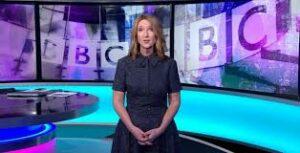
Another BBC employee alleged that Mr Edwards had also sent them a private message on social media which commented, too, on their appearance and gave them a “cold shudder”.
Mr Edwards was the BBC’s most well paid newsreaderin a pay bracket of £435,000 to £439,999 – putting him fourth on the top 10 list, the corporation’s annual report revealed – yet it has now all come crashing down.
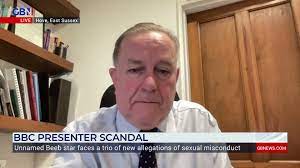
During the days in which Mr Edwards went unnamed as the presenter at the centre of the alleged sex scandal, the publicist and strategist Mark Berkowski told Times Radio: “We’ve got a situation where it’s an ongoing car crash and the BBC is so glacial about how they’re dealing with this, because this is a 21st century problem”. David Keighley, the former BBC news producer and director of News-watch, spoke of “reputational damage” to the man’s colleagues.
 However the supposed attitude of senior executives during the crisis also made headlines. One official reportedly said: “The only time I’ve seen my wife this weekend is when she was on TV”, adding: “We are all so sick and tired of these people”. The Times also reported it.
However the supposed attitude of senior executives during the crisis also made headlines. One official reportedly said: “The only time I’ve seen my wife this weekend is when she was on TV”, adding: “We are all so sick and tired of these people”. The Times also reported it.
A spoof mock up of a former BBC logo which circulated on the internet may not have been accurate, but showed the depths the corporation’s reputation sank to in the eyes of the public. It said: “BBC – Blokes Bumming Children”.
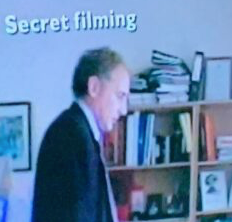
This reputation will have sunk even lower after the alarming revelations now that the BBC had been tipped off about Mr Edwards’ behaviour three years ago!











